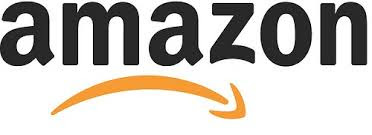Large companies since the beginning of time have been using their scale to extract tax breaks and other incentives out of increasingly desperate states but never has this age-old practice been so naked, public and shameless as Amazon effectively pitting every city of note in country against each other for which may end up being a bag bargain in the long run
Rarely have so many proud states, cities and towns fall over themselves to woo a single company offering them eye watering tax and other incentives that has had critics tag the whole process as a "race to the bottom", a term usually reserved to describe small to mid-size nation states offering super business friendly incentives to attract large multinational companies like Amazon usually at the expense of the taxpayer and crucial investment such as infrastructure or education.
It America's worst kept secret that Amazon is slowly becoming the most powerful member of the gang of four (Facebook, Amazon, Google and Apple) and while the other three could have mayors falling over themselves to persuade them to build new HQ's in their cities, neither of these companies wouldn't dream of starting a public bidding war that displays just how powerful these companies really are.
All four companies go to the lengths of earth to obfuscate their vast monopoly power but out of the four, Amazon is by far the least shy about flexing their considerable muscle despite possibly being the biggest target out of the quartet to be broken up.
The balance of power between states, cities and large corporation has long been in favor of the latter with large corporations using their influence (ether through the jobs it creates or economic activity it stimulates in the local area) for tax breaks, subsidies, or favorable legislation but Amazon has effectively made this practice a very public and ugly spectacle that could come back to haunt them.
It should come as no surprise that 238 states, cities and metropolitan areas threw their hat in the ring as many languish in growing municipal debt overburdened by obligations they barely can afford to meet.
The palpable desperation among America cities was hard to ignore as cities like Gary, that had no chance of landing Amazon's new HQ based on Amazon's population requirements alone, played its long odds anyway.
Nothing signaled just how dire things have become for Gary and many troubled small and mid-sized cities like it with their mayor taking an ad out in the New York Times effectively begging Amazon to consider them despite Gary shrinking population and its high unemployment and crime rates making the ailing city arguably the most investment proof city in the union.
For a company that prides itself on "doing hard things well", regenerating small and mid-sized cites with a new HQ would be one mighty challenge that Amazon would be highly credited for taking on and would go a long way to taking the antitrust target off its back but Amazon won't and never will because they don't have to and can get a better deal elsewhere.
This is no slight on Amazon as it would take a lot more than five billion in capital investment and 50,000 high paying jobs to fix the chronic problem that plague cites much larger and richer than Gary plagued with similar problems.
However, for a company that leans on its well-earned reputation for innovation and disruption, rebuilding troubled American cities such as Gary and Detroit would arguably be the best thing the company has ever done in its 24-year history.
In sum, Amazon may come to regret making the selection process so public and brazen but in the short-term Amazon look set to win either way

